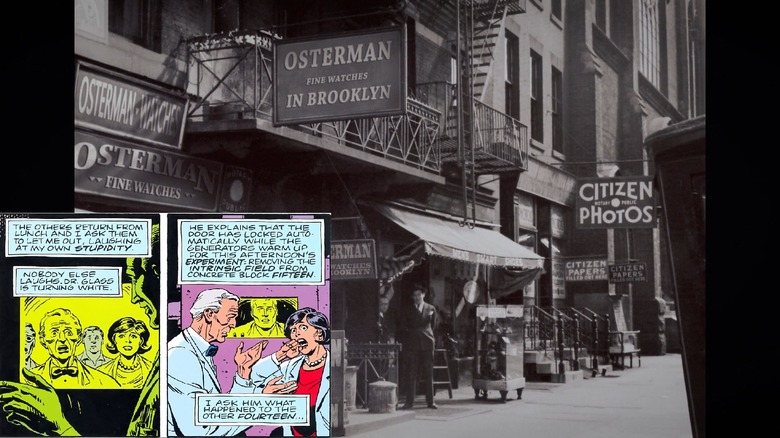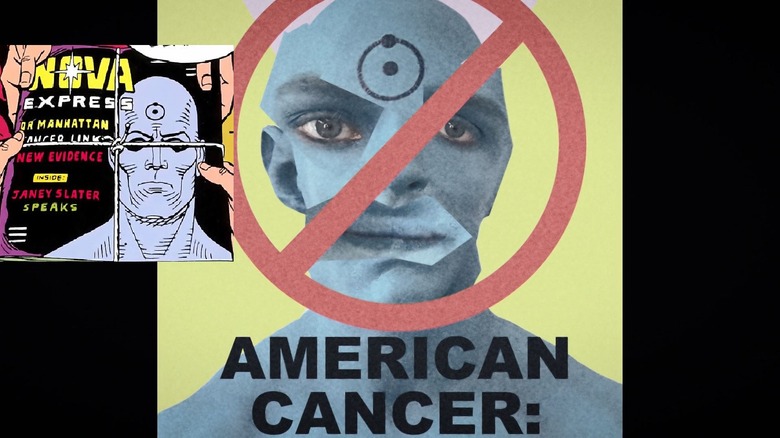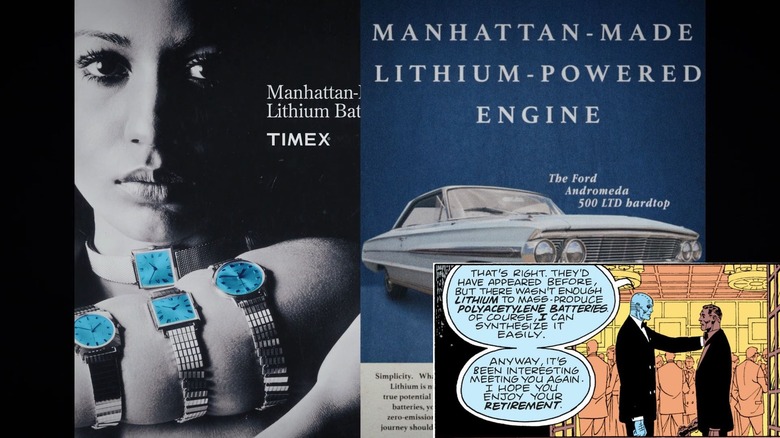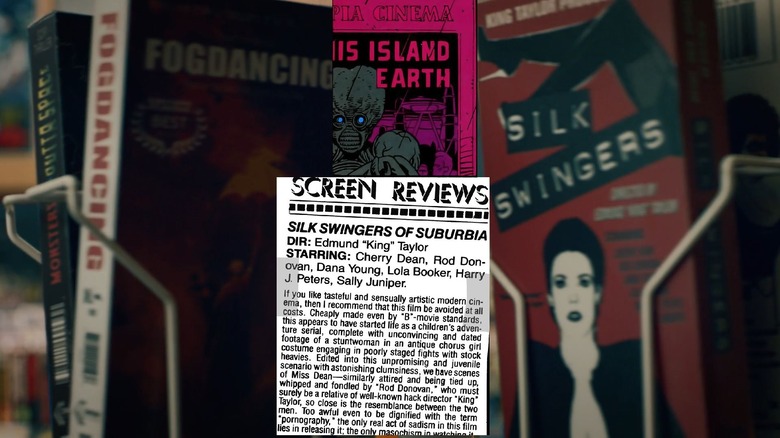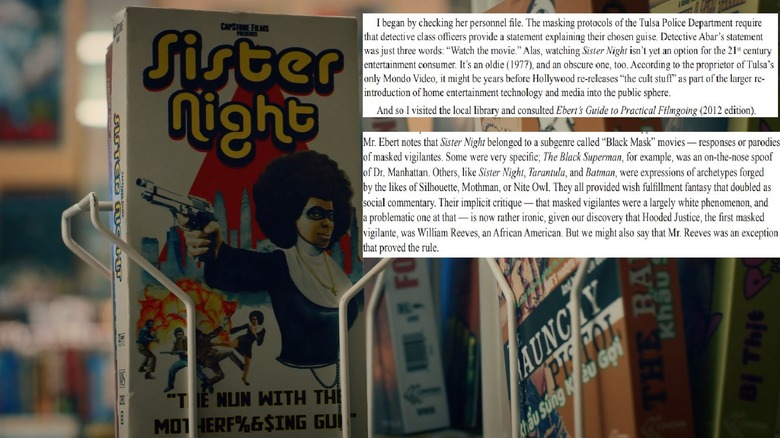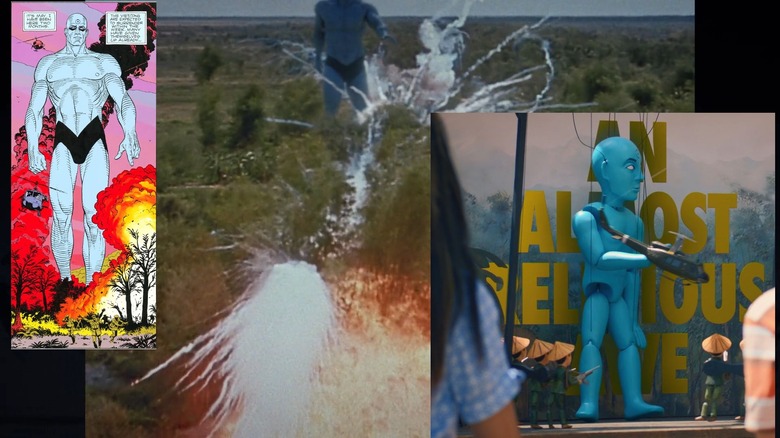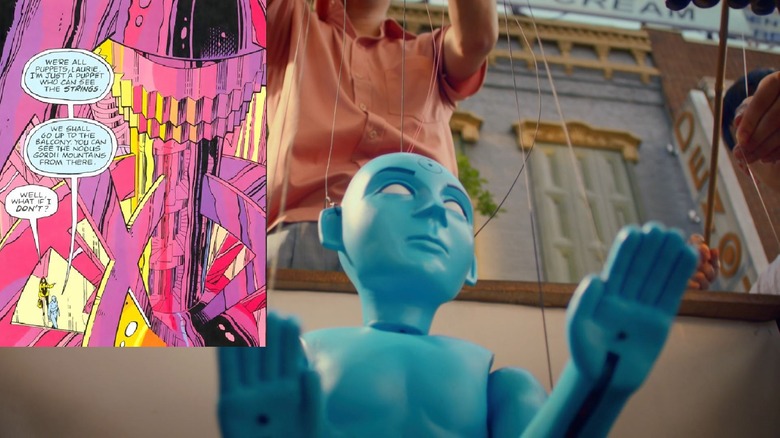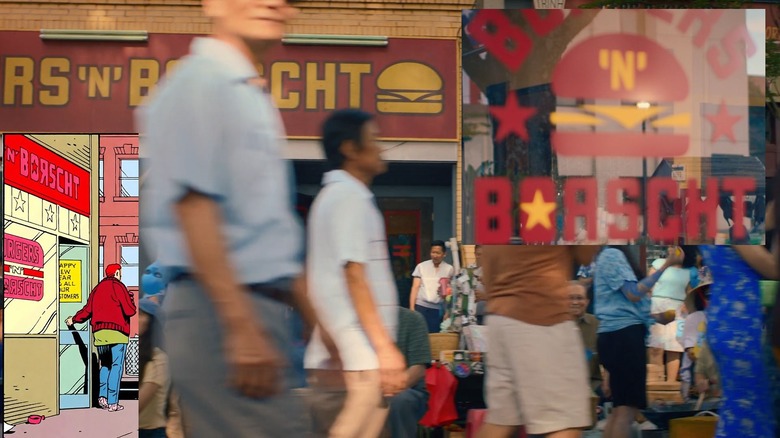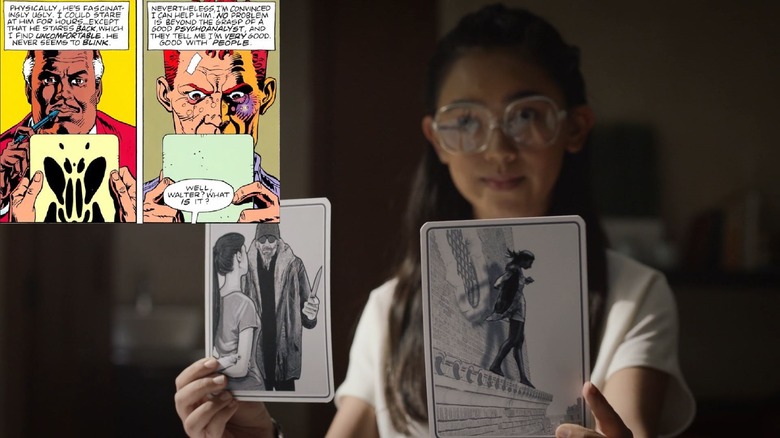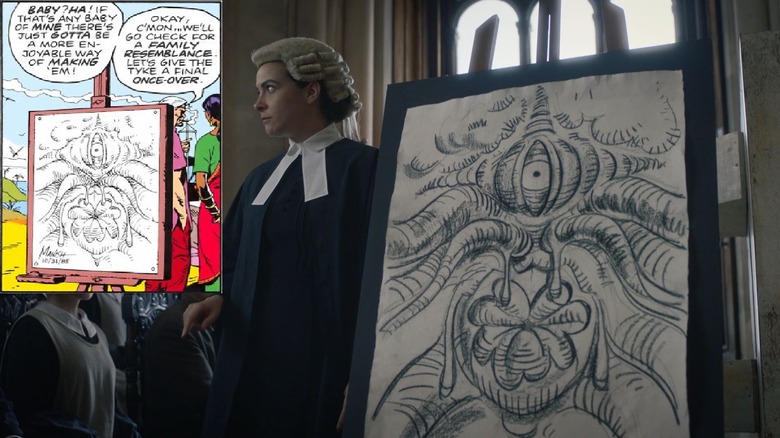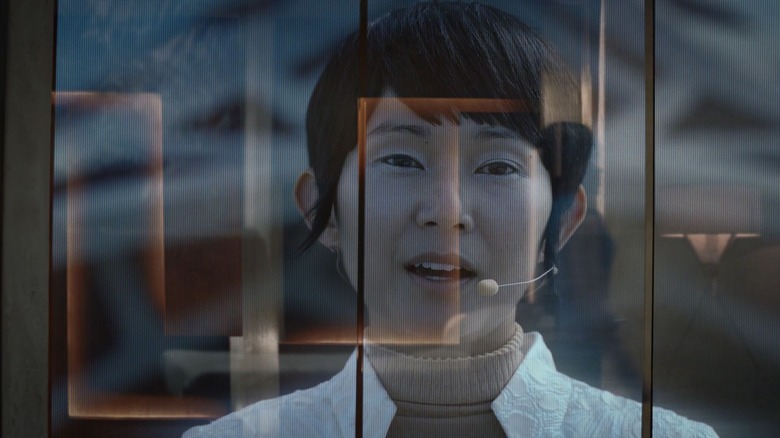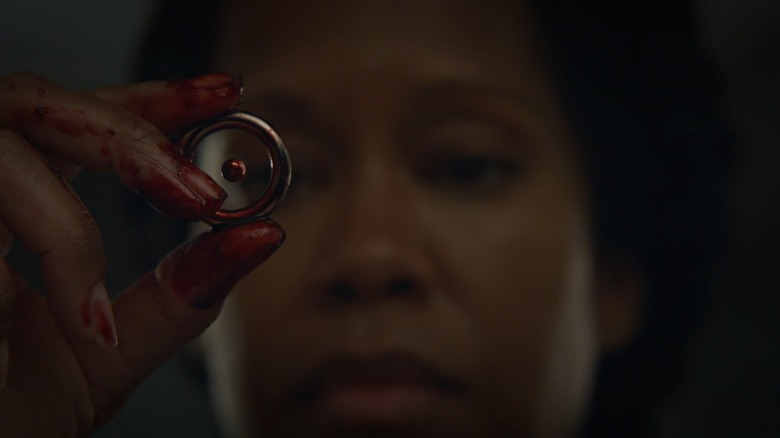The 'Watchmen' Reference Guide: Every Easter Egg In "An Almost Religious Awe"
This episode of Watchmen was a doozy, wasn't it? As if daring the audience to think the series could not throw more surprises at us, Damon Lindelof and his team of excellent writers have added not only to the story of Hooded Justice, but that of Doctor Manhattan.We'll be sure to talk about that last reveal for quite some time, but in the meantime, we have a lot more references to the source material and other things to consider this week. So join us, won't you? Let's look at all the references to the original Watchmen and more in "An Almost Religious Awe." As always, this will be spoiler-heavy.
Doctor Manhattan’s Origin
The beginning of the episode is a straight-up summary of Doctor Manhattan's origin. If you haven't read the comics, the show does explain everything you need to know about the character. We find out about his origin as a German refugee from WWII, his father's watchmaking business, and how a trip to the old Gila Flats compound turned him blue and made him a god among men.
The First Superman – and Cancer
We also see a brief shot of the pivotal Nova Express cover story detailing the link between Doctor Manhattan and cancer deaths in people associated with him. Of course, in the graphic novel, we discover that this was all based on false information planted by Adrian Veidt, but nonetheless this story was a big reason why the world turned against him.
Doctor Manhattan Beats Energizer
Though neither the comic not the TV show (until now) have gone into it in a ton of detail, one of the biggest things Doctor Manhattan changed in the world was his creation of synthesized lithium, which jump-started the electric car industry decades before our reality caught up. In the show's Peteypedia supplementary website, we discover that Veidt's campaign to make the world believe Doctor Manhattan caused cancer led to the recalling of all synthesized lithium.
VHS Tapes
In the graphic novel, Veidt played lots of alien invasion sci-fi movies in theaters he owned to subconsciously plant the seed of thought in the public's mind that aliens could invade, so we see a ton of posters similar to the VHS tape shown in the episode."Fogdancing" has already appeared in the show in the form of the popular book written by Max Shea, which the graphic novel reveals was turned into a film twice. It is unclear which version this is. As for "Silk Swingers", it is a clear reference to "Silk Swingers of Suburbia" a B-movie made about the original Silk Spectre, Sally Jupiter. According to the graphic novel, the film got very negative reviews.
The Nun With the Mother%&$ng Gun
If you haven't been reading the supplemental material on HBO's Peteypedia, you're missing out on a lot of great content. While not essential to the show, the website vastly helps in building the world of Watchmen in the same way the supplemental material at the end of every issue of the original graphic novel did.This week, we can read a memo from agent Dale Petey on the origin of Sister Night's costumed persona. In the memo, Petey alludes to the sad reality that the VHS tape seen in the episode (which inspired Angela's costume and name) isn't available to watch in the 21st century, as apparently it takes years for Hollywood to re-release "the cult stuff" as it seems like home media isn't available in 2019. The memo also references "Ebert's Guide to Practical Filmgoing." According to Ebert, Sister Night was part of the "Black Mask" genre, basically Watchmen's version of Blaxploitation movies, but with masked vigilantes and commentary on the largely white phenomenon of costumed adventurers.
Big Blue Won the War
This we already knew from Looking Glass a couple of weeks back, but the reason the United States won the Vietnam war is because Doctor Manhattan was basically a god and he could blow things up at will while growing to a kaiju-sized version of himself. The episode's title, "An Almost Religious Awe" refers to a line from the graphic novel where Manhattan narrates that many North Vietnamese wanted to surrender directly and personally to him, "their terror of me balanced by an almost religious awe."
I’m Just a Puppet Who Can See the Strings
We see a Doctor Manhattan marionette being controlled by a puppeteer, which references a line said by Doctor Manhattan when Laurie asks if he's just a "puppet following a script" in issue #9 of the comic. His response, in typical Doctor Manhattan fashion, is "We're all puppets, Laurie. I'm just a puppet who can see the strings."
Welcome to Good Burger
We see a place called Burgers 'n' Borscht twice in this episode. First in passing as Angela walks out of the video store, then towards the end as Angela and her grandmother are having lunch. The name of the fast food joint is a reference to an actual place from the graphic novel, specifically from issue #12. The fast food joint is one of the many nods given by the comic to signal the newfound peace between the US and the USSR due to Veidt's squid hoax. This has signaled a melding of cultures due to the new spirit of cooperation, which apparently includes this burger place.
Rorschach Test
Lady Trieu's daughter Bian is putting Angela through a psychological test which evokes the Rorschach test undergone by the vigilante with the same name while in prison in issue #6 of the original Watchmen.
Squid Drawings
The illustration of the alien squid presented at the trial of Adrian Veidt is the same one drew by surrealist painter Hira Manish in issue #8 of the graphic novel. Manish, like Max Shea, was killed by Veidt when he blew up all his co-conspirators to prevent the truth from ever coming out.
Look on My Works, Ye Mighty
Lady Trieu's speech ahead of the launch of her Millennium clock is an altered version of a line from the Percy Bysshe Shelley poem that gave Ozymandias his name. The original reads "Look on my Works, ye Mighty, and despair!" while Lady Trieu says "Gaze upon our mighty work, and with that despair..." sadly she is cut off before he can hear any more.
Life on Mars
With that shock of a twist ending, Watchmen ends the episode with an instrumental version of David Bowie's "Life on Mars" composed by Trent Reznor and Atticus Ross. The song played during the first trailer for the show, and it of course alludes to people believing Manhattan was on Mars. Reznor's Nine Inch Nails also toured with Bowie in the '90s and even collaborated on several songs.

